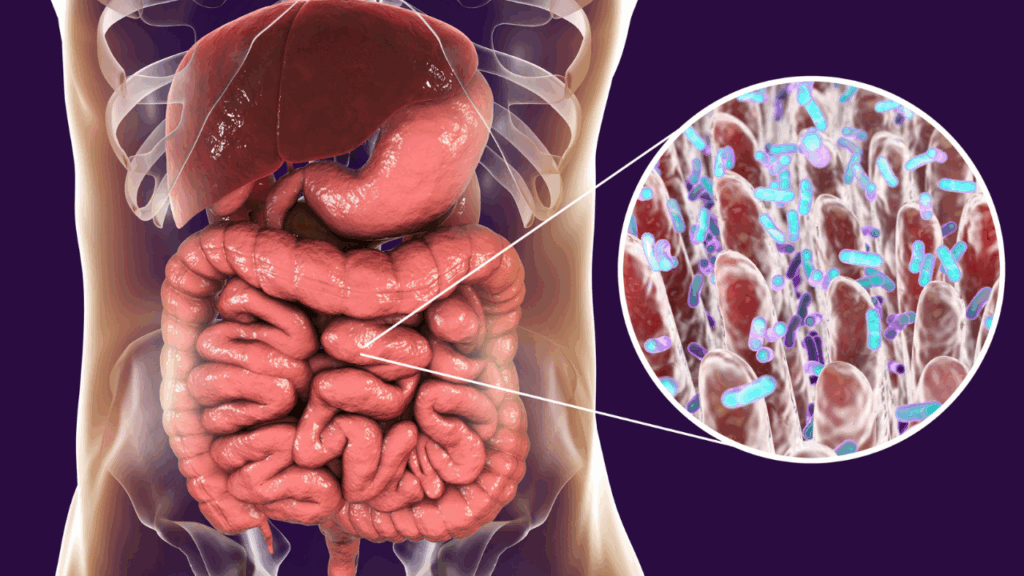A New Frontier in Chronic Inflammation: The FLUIDS iQ LPS Test

Biocanic is excited to announce the upcoming release of a groundbreaking new lab test from our partner, FLUIDS iQ. The LPS Marker is a first-of-its-kind clinical tool for measuring circulating lipopolysaccharides (LPS) in a dried blood spot test. Through it’s powerful insights this test is about to change the way we understand gut health, systemic inflammation, and the path to metabolic disease.
What is LPS and Why Does it Matter?
LPS, or lipopolysaccharide, is a component of the outer membrane of gram-negative bacteria. When confined to the gut, LPS plays a role in bacterial integrity. When it crosses the intestinal barrier and enters systemic circulation, it becomes a potent endotoxin. Its presence in the blood, especially in its active micellar form, can trigger widespread inflammation, contribute to immune dysregulation, and ultimately lead to conditions like insulin resistance, cardiovascular disease, and even sepsis.
The challenge? Until now, LPS was difficult to measure meaningfully. Most LPS tests rely on serum or antibody detection, which miss the vast majority of LPS stored intracellularly. FLUIDS iQ’s new LPS Marker measures total LPS content in a dried blood spot test. This allows for capturing levels stored inside immune cells to give practitioners a radically clearer view of the body’s true inflammatory burden.
“You want to know how much has escaped the gut and is now causing havoc. It is outside the gut that LPS does its damage. Chronic inflammation, endotoxemia, even sepsis. It all starts there. This test gives you that window.” – Dr. Gonshor
How the LPS Marker Works
Using a dried blood spot sample, the test takes advantage of the fact that cells undergo apoptosis when dried, releasing their intracellular contents. This enables the assay to measure the total quantity of LPS stored within white blood cells, which is something serum-based methods overlook entirely. According to Dr. Gonshor, President & CEO of FLUIDS iQ, the levels detected were “thousands of times higher than we previously thought,” fundamentally shifting our understanding of how much LPS can accumulate in the body.
This intracellular reservoir of LPS exists largely in micellar form tiny lipid-carbohydrate clusters that represent the biologically active, inflammation-triggering configuration of LPS. When cells die or undergo autophagy, these micelles are released into circulation, often triggering a cascade of immune activation. For individuals with chronic gut dysbiosis, leaky gut, or metabolic dysfunction, this constant trickle of LPS may explain unresolved symptoms, fatigue, and inflammatory pathology.
What Makes This Test Clinically Useful?
The LPS Marker doesn’t just detect inflammation, it helps explain it. When used alongside FLUIDS iQ’s Mucosal Barrier Assessment (MBA) functional lab test, practitioners can identify whether intestinal permeability is contributing to systemic endotoxemia. This clarity allows for highly targeted treatment strategies, especially in patients struggling with:
-
Chronic fatigue and brain fog
-
Histamine intolerance and high DAO
-
Cardiometabolic concerns
-
Persistent GI inflammation
-
Autoimmune activity and immune dysregulation
-
Suspected mold exposure or chemical sensitivity
One of the biggest clinical advantages of pairing the LPS Marker with MBA is the ability to determine whether inflammation is driven by paracellular transport (via elevated zonulin) or transcellular mechanisms, which is something that zonulin testing alone cannot reveal. With this information, practitioners can prioritize gut healing protocols more effectively, reduce “trial and error,” and optimize the timing of interventions like probiotics or antimicrobials.
Rethinking the Role of Diet, Fasting, and Immune Function
In the recent Biocanic Coffee Circle with FLUIDS iQ livestream, Dr. Gonshor emphasized the broader societal implications of elevated LPS. Over the last decade, North America has witnessed a sharp rise in obesity, metabolic syndrome, and hospital admissions tied to systemic inflammation. Much of this, he argued, is rooted in a dysbiotic gut and dietary excess from ultra-processed foods that disrupt microbial balance and compromise the gut barrier.
Notably, interventions like fasting or autophagy, often thought of as anti-inflammatory, may exacerbate LPS issues if not timed correctly. During autophagy, overloaded immune cells can rupture, releasing stored LPS into circulation and triggering an acute inflammatory response. This underscores the importance of testing and personalizing interventions, rather than applying blanket protocols.
Practical Implementation: Testing, Interpretation & First-Line Interventions
The LPS Marker is expected to launch in July 2025 and will be available as both a standalone test and as part of the existing Mucosal Barrier Assessment panel. Practitioners can order directly through Biocanic’s Lab Ordering Portal under the FLUIDS iQ catalog.
Initial interventions for elevated LPS focus on foundational gut repair:
-
Reduce gut inflammation before introducing probiotics
-
Rehydrate and restore the gut’s fluid layer (where secretory IgA and digestive enzymes function)
-
Correct dysbiosis through diet, lifestyle, and targeted antimicrobials
-
Rebuild microbial diversity only after addressing the root inflammatory triggers
As Dr. Gonshor emphasized…
“You don’t throw it up against the wall and hope it sticks. You test, assess, and then treat with intention.”
A New Lens on Chronic Inflammation
For years, LPS has been a hidden player in chronic disease. It is a toxin known to science, but difficult to measure clinically. With FLUIDS iQ’s LPS Marker, that barrier has been broken. Practitioners now have a tool that not only validates the gut-inflammation connection but helps personalize treatment with new precision.
This test opens a new chapter in functional medicine. One where chronic inflammation is no longer vague or invisible—but measurable, actionable, and finally addressable at the root.
Watch the full livestream for even more insights from Dr. Gonshor and the Biocanic community.
